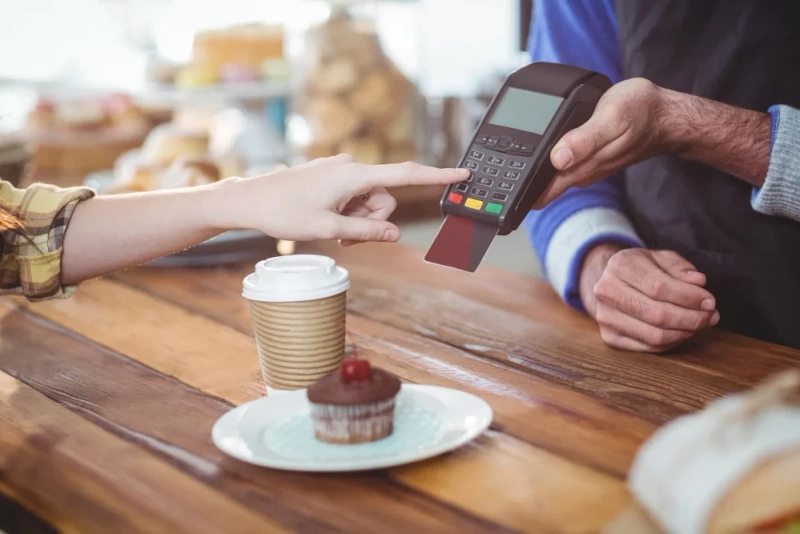Starting or growing a food business takes hard work. You need cash for new equipment, more staff, or bigger space. Quick loans can help. They give fast money to keep your business moving. This guide explains how to finance your food business. We focus on simple steps and useful tips. Read on to learn more.
Why Quick Loans Matter for Food Businesses
Food businesses face ups and downs. Seasons change demand. Costs for ingredients rise. You might need money fast to buy stock or fix a fridge. Quick loans fill these gaps. They let you grow without waiting months.
Many owners use loans to expand. For example, add a new menu or open a second spot. Without cash, growth stops. Loans keep things going. They also build credit for future needs.
In places like Saudi Arabia, options grow too. Local rules support small firms. Shariah-compliant loans are common. This makes financing easy for all.
Types of Quick Loans Available
Several loan types fit food businesses. Each has pros. Pick based on your needs. Here are key ones.
Merchant Cash Advances
This type gives cash based on sales. You pay back from daily credit card takings. It's fast—no long waits.
- Good for: Busy spots like cafes with steady sales.
- How it works: Get money in days. Repay a cut of future income.
- Pros: No fixed payments. Flexible if sales slow.
- Cons: Higher fees than bank loans.
Many use this for quick buys, like new ovens.
Business Lines of Credit
Like a credit card for your firm. Draw what you need. Pay interest only on used cash.
- Good for: Handling cash flow dips, like slow months.
- How it works: Apply online. Get approved fast. Use as needed.
- Pros: Reuse the line after paying back.
- Cons: Needs good credit score.
This helps food trucks buy fuel or stock without full loans.
Microloans
Small loans, often under $50,000. Great for starters or small growth.
- Good for: New food stalls or home bakers expanding.
- How it works: Non-profits or banks give them. Quick approval.
- Pros: Low rates. Help for those with less credit.
- Cons: Smaller amounts.
In Saudi Arabia, Microfinance company Saudi Arabia options like Bab Rizq Jameel offer these. They focus on young owners.
Equipment Financing
Loans just for tools or machines. The item is collateral.
- Good for: Buying fridges, grills, or vans.
- How it works: Lender pays seller. You repay over time.
- Pros: Easy approval. Keeps cash free for other uses.
- Cons: Lose item if you default.
This speeds up kitchen upgrades for growth.
Term Loans
Fixed amount with set payments. Can be quick if online.
- Good for: Big steps like new sites.
- How it works: Apply with docs. Get lump sum.
- Pros: Predictable costs.
- Cons: Needs strong business history.
How to Qualify for Quick Loans
Lenders check a few things. Make sure you meet them.
First, have a business plan. Show how you'll use the money. Include sales forecasts.
Second, check your credit. Scores over 500 help. Fix errors on reports.
Third, gather papers. Bank statements, tax returns, ID.
In Saudi Arabia, rules differ. Many loans follow Islamic finance. No interest—fees instead.
For fast options, look at apps. Some approve in hours.
Best finance company in Saudi Arabia like Tasheel Finance offer quick personal loans. They fit small food firms.
Steps to Apply for a Loan
Follow these to get funds fast.
- Assess needs. How much? For what?
- Research lenders. Compare rates, terms.
- Prepare docs. Have them ready.
- Apply online or in person. Many take minutes.
- Review offer. Check fees, rates.
- Sign and get cash. Often in 24-48 hours.
Use tools like lender match sites. They connect you to options.
Benefits of Quick Loans for Growth
These loans boost your business.
- Speed: Money when you need it.
- Flexibility: Use for many things.
- Growth: Expand menu, staff, or space.
- Credit build: On-time pay helps future loans.
Food owners see sales rise after investing. A new ad campaign or better tools draws customers.
But borrow wisely. Only what you can repay. Plan cash flow.
Risks and How to Avoid Them
Loans have downsides. Know them.
High fees on quick options. Shop around.
Debt overload. Borrow less than needed.
Default risk. Miss payments, lose assets.
To avoid: Budget well. Track expenses. Have backup plans.
Talk to advisors. They guide choices.
Saudi Arabia-Specific Options
Saudi supports food growth. Vision 2030 boosts small firms.
Government funds like SIDF offer up to 2 million SAR. For equipment or sites.
Banks like Riyad give term loans. Fast for MSMEs.
POS financing from HALA uses sales data. Instant nods.
Microfinance helps starters. Shariah-compliant.
These fit local needs. Easy for expats too.
Tips for Success After Getting a Loan
Got the cash? Use it smart.
Track spending. Stick to plan.
Invest in growth. Train staff, market more.
Monitor results. Adjust as needed.
Pay on time. Builds trust.
Seek help if stuck. Lenders often rework terms.
Conclusion
Financing your food business is key to growth. Quick loans make it possible. Choose the right type. Prepare well. In Saudi Arabia or elsewhere, options exist.
Stay smart with money. Grow step by step. Your business can thrive.



